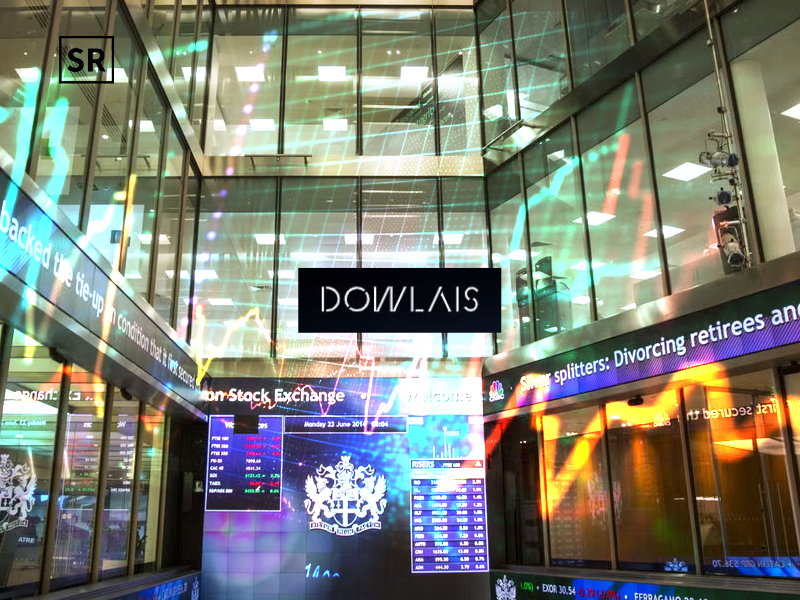Meet Diella: Albania Appoints the World’s First AI Cabinet Minister to Combat Corruption
Sep 16, 2025 | By Kailee Rainse

Albania has made history by appointing Diella is the world’s first AI-powered cabinet minister to fight corruption. This bold step shows the country commitment to using advanced technology to solve long-standing political and administrative problems. By bringing AI into the government, Albania hopes to increase transparency, improve accountability and make decisions based on data.
The move not only reflects Albania ambition to modernize its institutions but also makes it a global pioneer in AI-led governance. This appointment has attracted worldwide attention sparking discussions about the role of AI in politics ethics and the future of democracy.
AI-powered minister with real authority
Albania has taken an unprecedented step by appointing Diella is a digital minister with actual authority in government decision-making. Unlike AI used in advisory roles, Diella has been granted official powers to help lead the fight against corruption and strengthen transparency within the country institutions. This bold move highlights Albania’s determination to embrace cutting-edge technology in governance, modernize its political system, and improve public trust. By giving an AI system genuine influence in policy and administration, Albania has positioned itself as a global trailblazer in AI-driven governance, sparking international attention and debates about the ethical, political, and democratic implications of granting artificial intelligence real authority.
- Albania appointed Diella, the world’s first AI-powered digital minister with actual authority.
- Diella is tasked with combating corruption and improving transparency in governance.
- Unlike advisory AI tools, Diella has real decision-making influence in government.
- The move reflects Albania’s push to modernize institutions and rebuild public trust.
- This appointment has drawn global attention, raising debates on AI’s role in politics, ethics, and democracy.
Transparency vs Accountability
The appointment of Diella, Albania AI-powered digital minister, raises important questions about transparency and accountability in governance. On one hand, Diella enhances transparency by relying on data-driven processes ensuring that government decisions are documented, traceable and less prone to human bias. This can help reduce corruption and improve public trust in institutions. On the other hand, accountability becomes more complex since AI does not possess human responsibility in the traditional sense. If Diella makes a flawed decision or misinterprets data it is unclear who should be held accountable the AI system itself, the developers who built it, or the government that deployed it. This tension highlights both the promise and the challenges of integrating artificial intelligence into leadership as transparency may improve while accountability mechanisms need to be redefined to ensure ethical and responsible governance.
RECOMMENDED FOR YOU

Dowlais Share Price Prediction (2025-2030): Expert Analysis & Predictions
Team SR
Jun 17, 2025
Transparency:
- Diella makes decisions based on data reducing human bias.
- AI processes are traceable, creating clearer records of government actions.
- Helps strengthen public trust by making operations more open.
Accountability:
- Raises challenges in assigning responsibility for AI-driven decisions.
- Unclear whether developers, government officials or the AI system should be held accountable.
- New governance frameworks are needed to define responsibility for errors or misuse.
Political Context
The political context surrounding Diella, Albania AI-powered digital minister reflects both the country internal challenges and its global ambitions. Albania has long struggled with corruption and weak institutional trust issues that have hindered its democratic development and slowed its progress toward European Union membership. By appointing an AI minister with real authority the government signals its intent to modernize governance, reduce political bias and restore public confidence in state institutions.
Internationally, this move positions Albania as a bold innovator showcasing its willingness to experiment with technology-driven reforms at a time when many nations are still debating the risks of AI in politics. The appointment also sparks debate about the balance of power between elected officials and artificial intelligence raising questions about democratic legitimacy, accountability and the ethical boundaries of AI in leadership.
Albania Corruption Problem
Albania’s corruption problem is deeply rooted and continues to be one of the country’s biggest challenges in building a strong and transparent democracy. For decades, corruption has affected many areas of public life, including politics, the judiciary, law enforcement and public administration, making it difficult for citizens to trust state institutions.
Bribery, nepotism, and misuse of power have often undermined fair decision-making and created barriers to equal opportunities for businesses and individuals. This widespread issue has slowed Albania’s economic growth, discouraged foreign investment and posed serious obstacles to its path toward European Union membership, as the EU has repeatedly emphasized the need for stronger anti-corruption reforms.
While recent governments have introduced measures and institutions to fight corruption, enforcement has been inconsistent, and powerful networks of influence often weaken accountability. As a result, corruption remains not only a governance issue but also a social and economic burden that Albania must urgently address to strengthen the rule of law, restore public trust and achieve sustainable progress.
Precedent for the Future
The appointment of Diella as the world’s first AI-powered cabinet minister sets a groundbreaking precedent for the future of governance. By granting artificial intelligence real decision-making authority Albania has ushered in a new era where technology could play a central role in shaping political systems. Diella’s role serves as an experiment that could influence how other countries view the potential of AI in combating corruption, improving transparency and streamlining public administration. At the same time it raises important questions about democratic accountability, ethical responsibility and the limits of non-human leadership in politics. If successful Diella could inspire other nations to adopt similar models, reshaping the relationship between citizens, governments and technology. If challenges arise it will provide valuable lessons on the risks of granting AI too much influence. Either way Diella appointment marks the beginning of a global debate on the future of AI in governance.
About Diella
Diella is recognized as the world first AI-powered cabinet minister, appointed by Albania to take on one of the country’s toughest challenges fighting corruption. Unlike conventional AI tools that act as assistants or advisors, Diella has been entrusted with actual decision-making authority, making her role a historic first in global politics. Her appointment reflects Albania’s determination to modernize governance, increase transparency and strengthen accountability in public institutions through technology.
By using data-driven insights and minimizing human bias Diella is expected to improve efficiency in government processes and help rebuild public trust in the system. At the same time, her role has sparked worldwide debate on the implications of granting artificial intelligence real political power, raising questions about accountability, ethics and the future of democracy. Diella’s presence in Albania’s cabinet makes the country a pioneer in AI-led governance and acts as a test case for how other nations might use artificial intelligence in leadership and public administration.
Conclusion
The appointment of Diella as the world first AI cabinet minister is a historic step for Albania and global politics. By giving real authority to artificial intelligence, Albania is showing leadership in fighting corruption and modernizing its political system. This bold step could help make the government more open and responsible but it also raises questions about ethics, accountability, and the role of AI in leadership. Whether Diella succeeds or fails will not only impact Albania reforms but could also influence how other countries decide to use AI in their governments.
Recommended Stories for You

Premier African Minerals Share Price Prediction (2025-2030): Expert Analysis & Predictions
Kailee Rainse Mar 29, 2025


 Follow us
Follow us Follow us
Follow us













